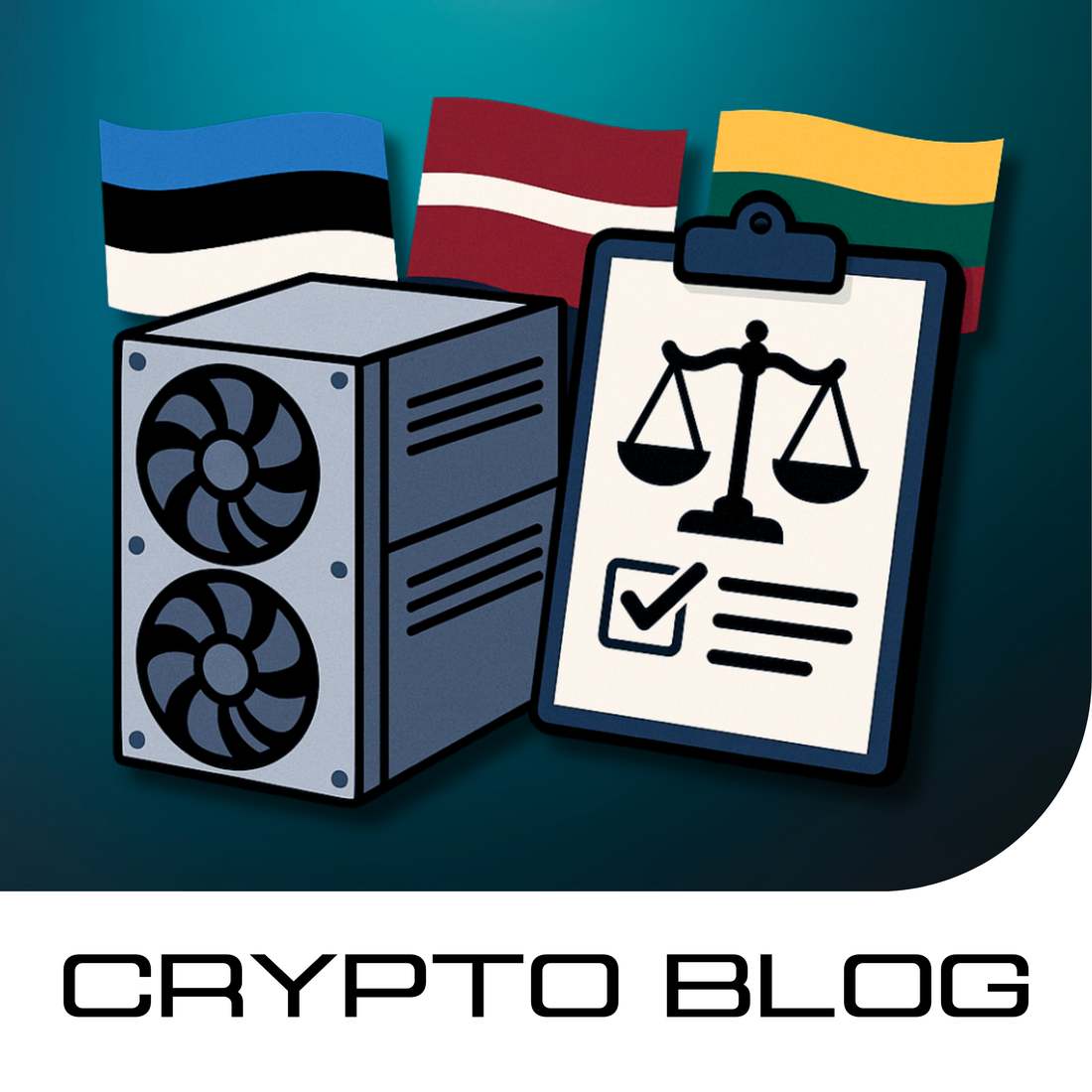Mining Regulations in the Estonia, Latvia, and Lithuania.

As of April 2025, cryptocurrency mining in Estonia, Latvia, and Lithuania is governed by national laws and the EU’s Markets in Crypto-Assets (MiCA) framework. This article provides an up-to-date overview of taxation, licensing, energy use, and official regulatory stances in each country.
Estonia: Clear Tax Rules, No License Required
Taxation
In Estonia, crypto mining income is considered business income, subject to taxation. As of January 2025, the personal income tax rate increased from 20% to 22%. Miners must declare their earnings accordingly.
Licensing and Regulation
Cryptocurrency mining is permitted in Estonia without any specific license requirement. The Estonian Financial Supervision and Resolution Authority (EFSRA) has confirmed that mining activities are not under its direct supervision.
Energy Use and Environmental Considerations
While Estonia has no specific laws on energy consumption for mining, it aligns with EU-wide sustainability goals. Miners are encouraged to adopt renewable and energy-efficient practices to support environmental initiatives.
Latvia: Evolving Tax Policies and Regulatory Framework
Taxation
Latvia applies a personal income tax rate of 25.5% on capital gains from cryptocurrency transactions. However, from January 2025 until the end of 2027, non-residents are temporarily exempt from a 3% levy on crypto asset sales in public circulation.
Licensing and Regulation
Latvia currently lacks a dedicated national licensing framework for crypto-related businesses. However, crypto service providers must comply with Anti-Money Laundering (AML) regulations and register with the State Revenue Service (SRS).
Energy Use and Environmental Considerations
Latvia has no specific regulations addressing energy use for crypto mining. Nonetheless, miners are advised to follow general EU environmental regulations and adopt sustainable practices.
Lithuania: Structured Licensing and Environmental Awareness
Taxation
Lithuania taxes gains from cryptocurrency sales at 15%. Private individuals benefit from a non-taxable allowance, with additional rules potentially applying based on employment status and income.
Licensing and Regulation
Lithuania offers clear licensing guidelines for crypto businesses, including exchanges and wallet services. Companies must register locally, comply with Anti-Money Laundering (AML) and Know Your Customer (KYC) procedures, and register with the Financial Crime Investigation Service (FCIS).
Energy Use and Environmental Considerations
Lithuania aligns with EU environmental standards without specific regulations targeting crypto mining. Authorities actively encourage miners to use energy-efficient technologies and minimize environmental impacts.
Conclusion
The Baltic States present varied regulatory environments for cryptocurrency mining:
- Estonia offers clear taxation without licensing hurdles.
- Latvia is in transition, refining its tax policies and registration processes.
- Lithuania provides structured licensing and emphasizes regulatory compliance and environmental responsibility.
Crypto miners and businesses operating in these countries should monitor both national regulations and evolving EU directives to ensure legal compliance and sustainable operations.
